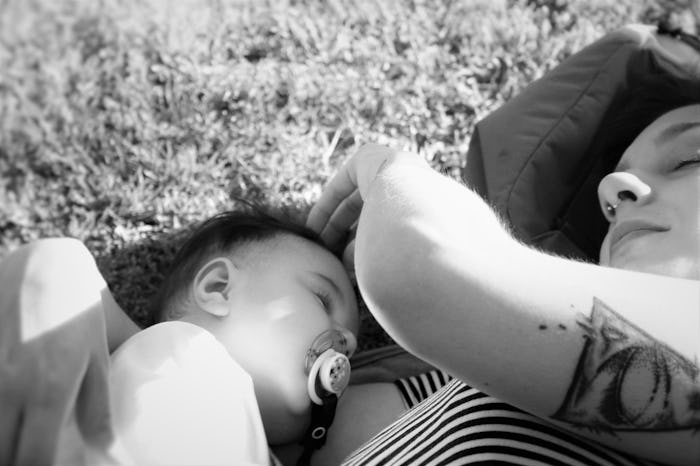With the more moms practicing extended breastfeeding, it's highly likely that some of them will become pregnant again while they are still nursing. In fact, tandem breastfeeding, which is when you nurse two children of different ages at the same time, has become quite common. Your milk will likely go through a few changes once you are expecting, but the one question many mothers want to know is, "Does your breast milk taste different when you're pregnant?"
Before going into the flavor of your flow, it's important to note that the hormonal changes associated with a pregnancy will likely affect the amount of breast milk you produce. According to Kelly Mom, progesterone levels gradually rise during pregnancy, and it is theorized that this causes the mammary alveoli – the small cavities in the mammary gland where milk is produced and stored – to become leaky and unable to store milk well. When you are not pregnant, the production of your breast milk depends on the adequate emptying of your breasts. But the decrease in milk production during pregnancy can occur despite your child's continued or increased nursing frequency. Even so, the decrease in the amount of milk you produce doesn't necessarily change its taste. The flavor of your breast milk changes because your breast milk, itself, changes during your pregnancy.
As IBCLC Anne Smith told the website Breastfeeding Basics, sometime in the second trimester, breast milk begins to change over to colostrum, the nutrient packed "first milk" that the body produces for newborns. Colostrum is not as sweet as mature milk, and your baby may notice the difference. According to the website Breastfeeding Place, a decrease in lactose and increase in sodium may also cause the milk of a pregnant mom to taste more salty than usual.
Even though a number of older babies begin to wean during this time, many don't mind the change in taste or amount and will continue to nurse as usual. It is perfectly safe for you, your older baby, and the baby you are expecting if you wish to continue to breastfeed while pregnant. Smith added that breastfeeding during your pregnancy will not deprive the fetus of essential nutrients, nor will it put unnecessary stress on your body. You also shouldn't worry about your older baby finishing off all of your newborn's colostrum. According to Breastfeeding Place, your breasts will continue to make colostrum until after your new baby is born.
